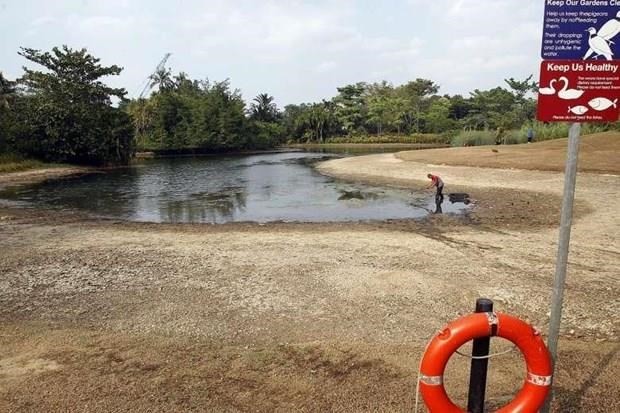
The Meteorological Service Singapore (MSS) had warned earlier this month that the IOD is currently in its "positive" phase. This causes weather over Southeast Asia to be hotter and drier than usual. The impact of the positive phase of the IOD on Southeast Asia is similar to the one that another climate phenomenon – El Nino – has on the region.
The country’s national water agency PUB said there has been a slight drop in the water level at Bedok Reservoir due to the warm weather.
During dry months, PUB will top up Singapore's reservoirs with Newater, or recycled used water, to keep water reserves at a healthy level.
Last month, the total rainfall recorded at the climate station in Changi was 92 percent below the long-term average, breaking the record set in 1997 for the driest July in Singapore. Last month was also Singapore's second warmest July on record, with an average temperature of 29 degrees Celsius.
























